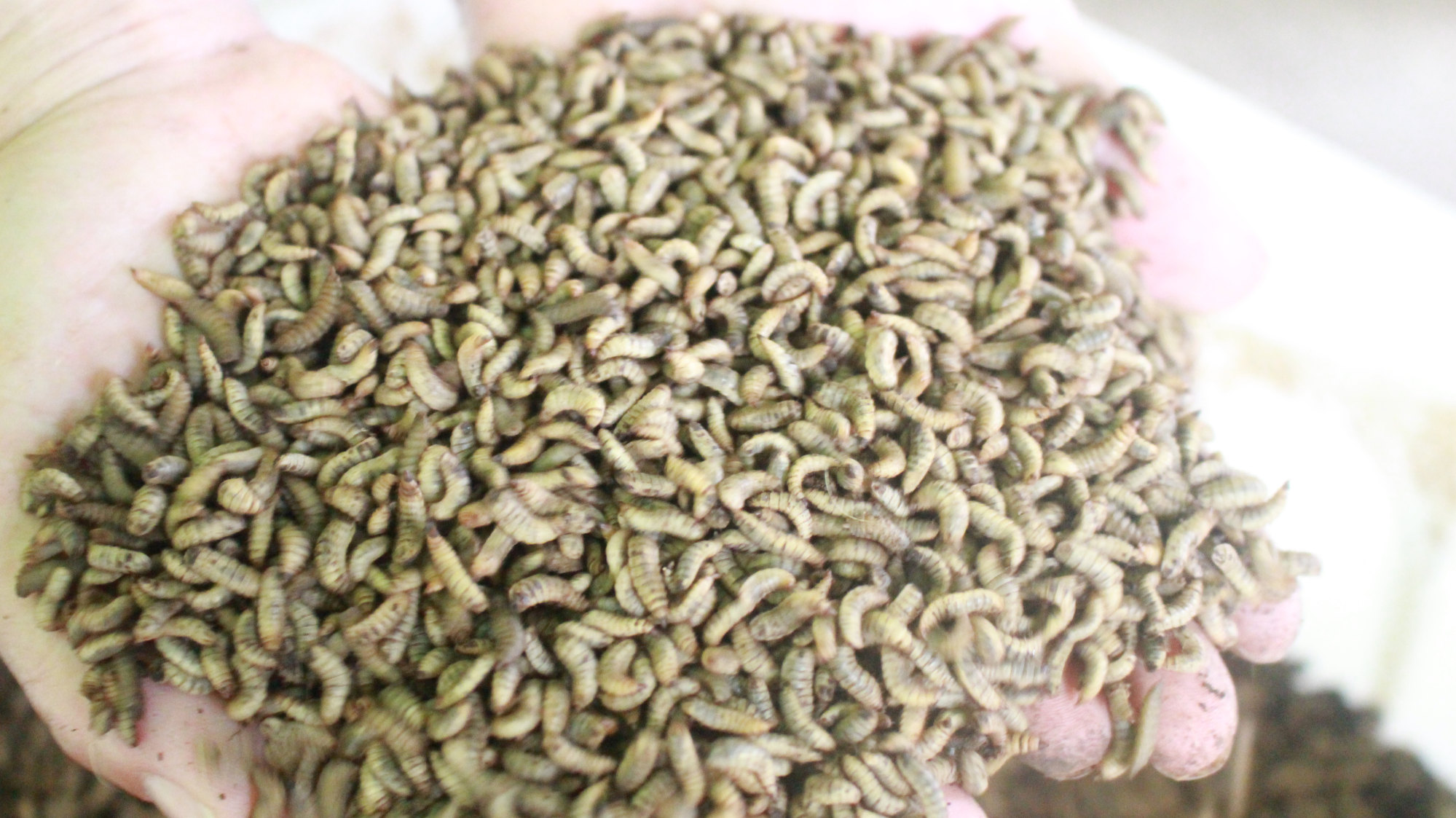
Hong Kong biotech firm wins government contract to use fly maggots to eat up city’s huge organic waste problem
- Organic Tech plans to establish a 35,000 sq ft facility in Tuen Mun where larvae will turn city’s chicken waste into fertiliser, fish feed
- Company CEO calls the project part of a ‘great circular economy’, suggests future expansion could tackle overflowing city landfills
A biotechnology company has suggested using fly maggots to take a bite out of Hong Kong’s massive food waste problem, with plans already going ahead for a facility to use larvae to chew through chicken waste.
Organic Tech, a subsidiary of Baguio Green Group, one of the city’s main waste management companies, will set up a plant in Tuen Mun’s EcoPark in June, to convert 10 tonnes of chicken faeces – one-third of the city’s output – into about five tonnes of fertiliser and fish feed by September using black soldier fly larvae.
“They will eat anything as long as it’s organic matter, and they are very hungry,” Baguio CEO Phyllis Ng Yuk-kwan said.
“This is an environmentally friendly method that can help tackle the food waste problem, and the end product also goes back into food production. It’s a great circular economy system,” she added.
After it won an Environmental Protection Department contract worth HK$27.6 million (US$3.53 million), Baguio plans to build a 35,000 sq ft enclosed, controlled environment facility to run the project and ensure the flies cannot escape.

The two-year project, ending in August 2023, would use chicken waste collected from 25 local chicken farms in the New Territories each day, Ng said, explaining that it would be easy to increase capacity as the tubs used to keep the larvae could be stacked up.
Scientists proposed using black soldier flies to convert manure into protein from as early as the 1970s, and technology to breed them has been available since 2002. According to one US researcher, a single acre of maggots could produce more protein than 3,000 acres of cattle or 130 acres of soybeans.
The United States, Britain and Singapore all currently run projects which use the black soldier flies to handle food and other organic waste. A community-based plant in mainland China could handle up to 120 tonnes of food waste per day, Ng said.
The larvae grow quickly, taking five days to hatch and another 10 days to reach the end of their larval stage, at which point they are harvested as fish feed, she said.
The young insects make ideal candidates for breaking down all sorts of organic matter, including food waste, because they are not picky eaters, said the Baguio CEO, adding that larvae excretions were also useful as plant fertiliser.
The more nutrition-rich the waste fed to the larvae, the better the quality of the bugs, which could be certified as organic, she said.

The company was currently in talks with local fish farms to provide them with organic feed, while the fertiliser would be used in its own gardening business.
Ng said she hoped their facility could eventually assist the government’s food waste processing plants, which handles about 200 tonnes of waste each day.
The amount remained just a fraction of the more than 3,000 tonnes of daily food waste sent to city landfills.
“Once the proposed waste charging scheme comes into effect, it will make it more attractive for people to separate their food waste, and easier for us to collect it,” Ng said. “And since the black soldier fly facilities can be small or big, and they don’t smell, there could be one in every district.”
Pandemic offers Hong Kong a chance to tackle food waste and poverty
However, Dr Chung Shan-shan, director of Baptist University’s environmental and public health management programme, said that while she was supportive of the plan to tackle chicken waste, she was more sceptical about its wider application in processing food waste.
“It’s great for chicken manure because the by-products are useful, instead of just treating it at a waste water plant and it just turns to sludge,” Chung said. “But its wider use in smaller areas such as schools or housing estates would be space and manpower dependent,” she explained.
The system would also have to be simple enough for a layperson to use it and would require a collection system to be set up for the grown larvae and their refuse, she said.
“There’s also the question of how much food waste it can handle, or, given the current shortage of students in local schools, whether the schools can generate enough waste,” Chung added.

Meanwhile, The Green Earth executive director Edwin Lau Che-feng said he was more optimistic.
“This can work. It should be incorporated into the government’s plan so we can take a multipronged approach to the food waste problem,” he said.
Since the facilities were not very technically challenging to set up, Lau said they could be easily adopted at various community centres such as schools, universities or government-run recycling centres.
He urged the government to provide more funding to local biotechnology companies and start-ups to allow for the creation of similar programmes.

